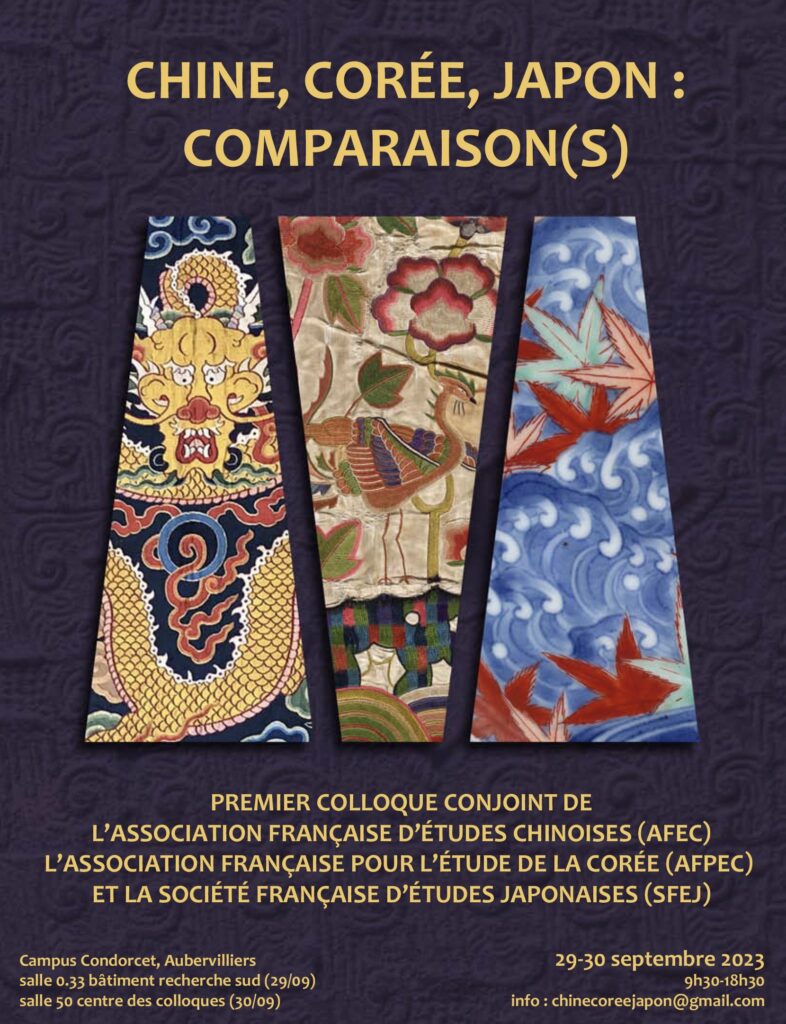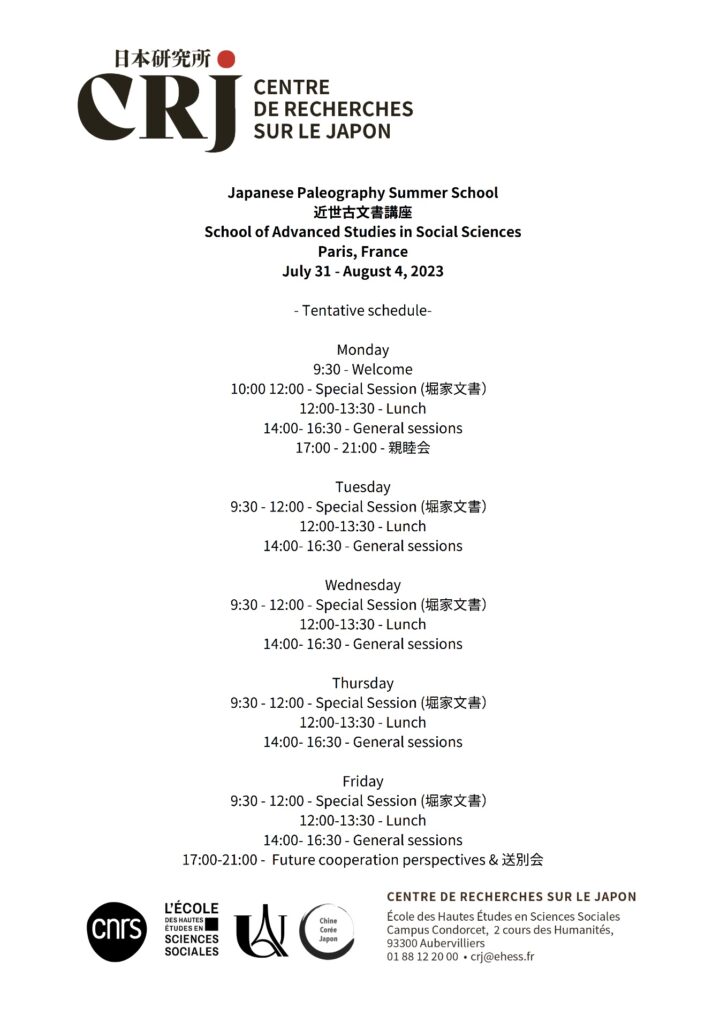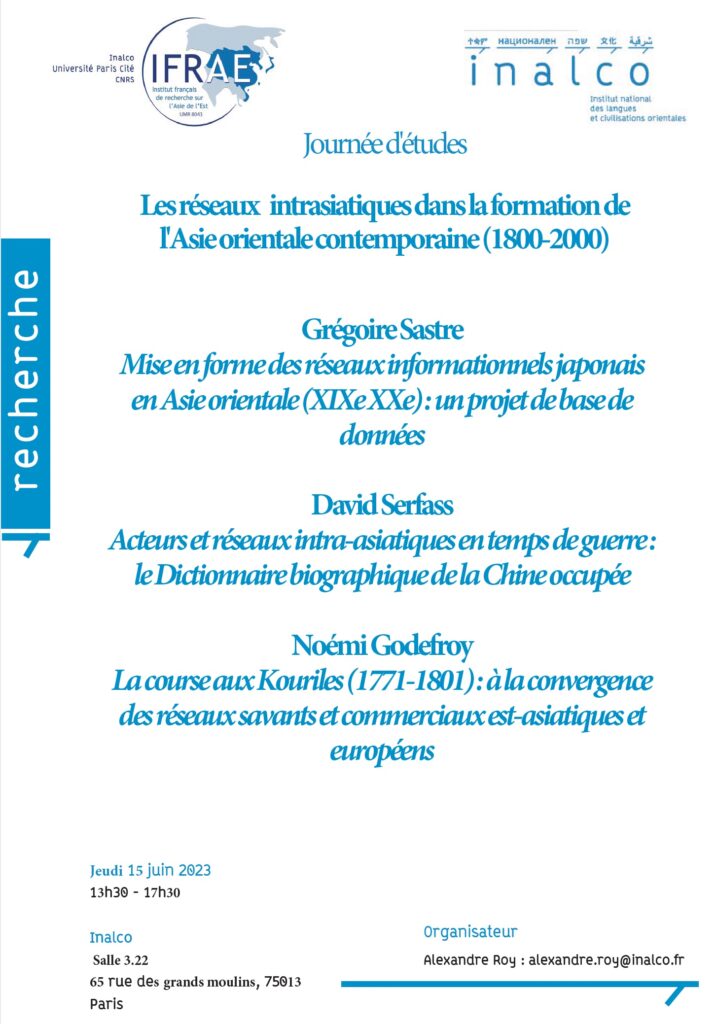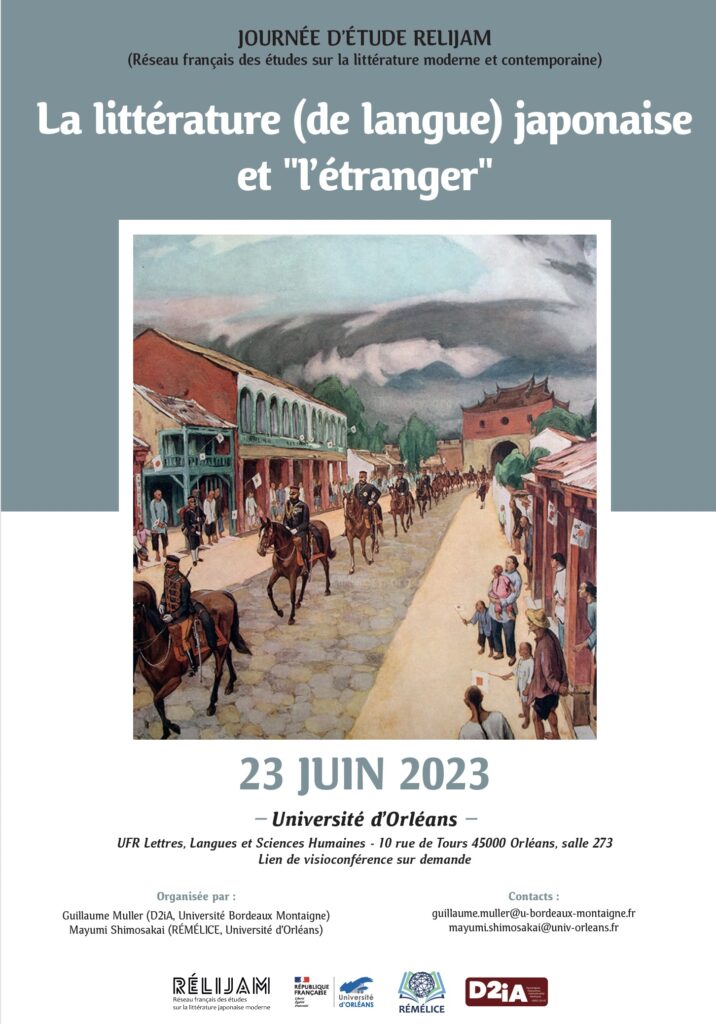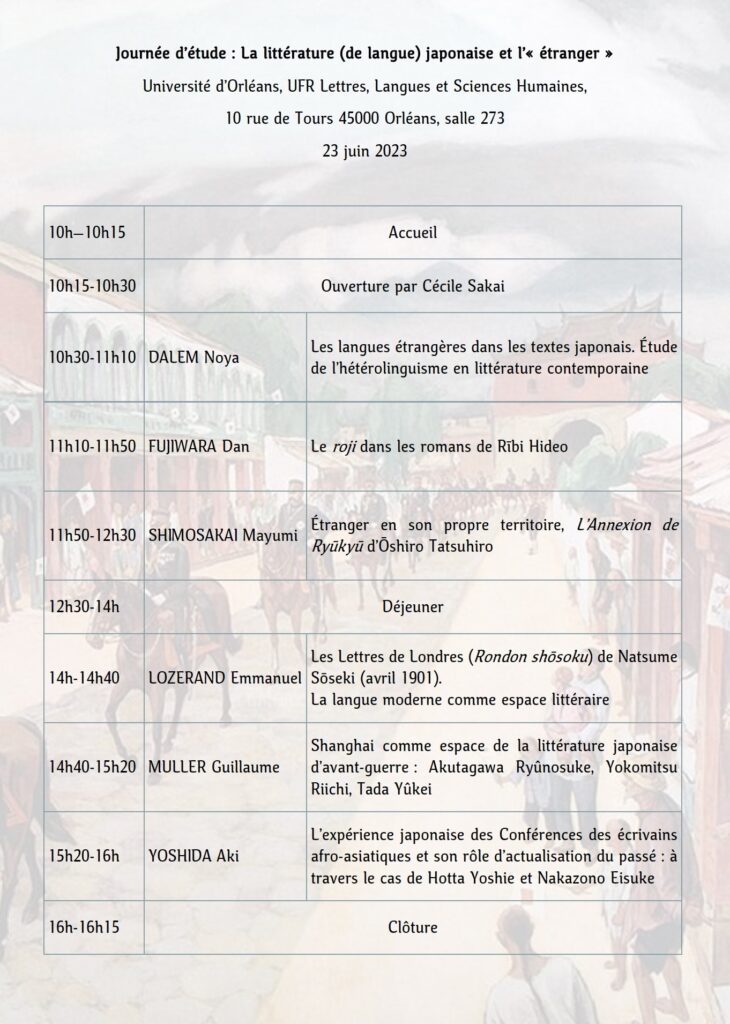Estelle Bauer et Marianne Simon-Oikawa ont le plaisir de vous annoncer la tenue d’une journée d’étude intitulée :
« Lire les images, lire avec les images / Reading Images, Reading with Images«
Vendredi 10 novembre 2023, Amphi Turing, Bâtiment Sophie-Germain, Université Paris Cité, 8 Place Aurélie Nemours, 75013 Paris
Organisation : Estelle Bauer (estelle.bauer@inalco.fr) et Marianne Simon-Oikawa (marianne.simon-oikawa@u-paris.fr), Faculté Sociétés & Humanités Université Paris Cité, CRCAO, IFRAE
Programme
08h50-09h05. Accueil
09h05-9h15. Estelle Bauer et Marianne Simon-Oikawa : Présentation
Matinée
Modérateur : Matthias Hayek (École Pratique des Hautes Études-PSL)
09h15-10h15. Joshua Mostow (University of British Columbia) : The role of images in the popularization of the Ogura Hyakunin isshu during the Edo period
10h15-11h. Marianne Simon-Oikawa (Université Paris Cité) : Poètes à voir : écriture et poésie dans les moji-e de l’époque d’Edo
Pause
11h15-12h. Estelle Bauer (Institut National des Langues et Civilisations Orientales) : « Montrer les faits pour aider à comprendre » : le rôle des gravures dans la première édition illustrée du Dit du Genji (1650-1654)
12h-12h45. Christophe Marquet (École française d’Extrême-Orient, en visio) : Lire les images populaires d’Ôtsu de l’époque d’Edo : inscriptions, éloges et poèmes moraux
Après-midi
Modérateur : Édouard L’Hérisson (Institut National des Langues et Civilisations Orientales)
14h30-15h30. Sharalyn Orbaugh (University of British Columbia) : The War Between Text and Image: Anti-war Messages in Japan’s World War Two Popular Culture Propaganda
15h30-16h15. Ken Daimaru (Université Paris Cité) : Voir et savoir. Une approche visuelle du corps humain dans la guerre Russo-japonaise
Pause
16h30-17h15. Clara-Akiko Wartelle-Sakamoto (Université Paris Cité) : Les albums illustrés chez Fukuikan-shoten
17h15-18h00 : Discussion


